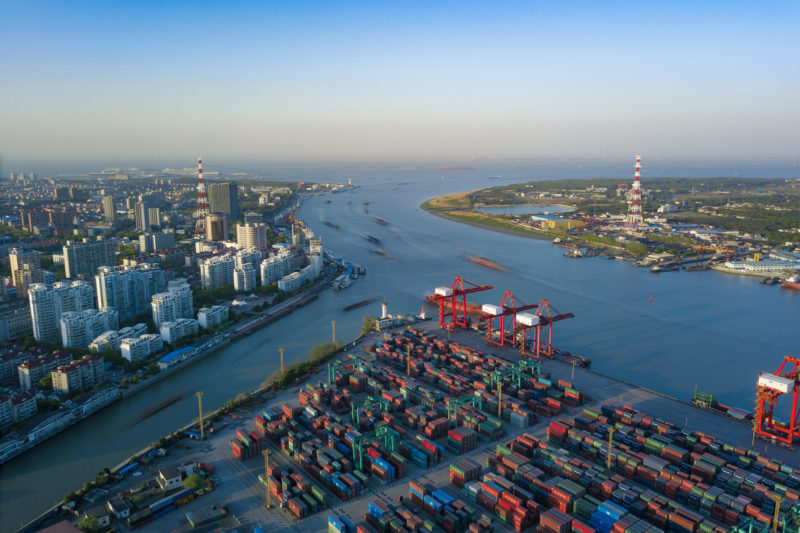The Case for Free Trade is a Unilateral One

The economic and ethical case for a policy of free trade does not depend upon the actions of other governments. Contrary to protectionists’ incessant insistence, residents of the home country gain from their own government leaving them free to trade even if foreign governments – as foreign governments almost always do – use tariffs, subsidies, and other interventions to obstruct and distort their own citizens’ global commercial relations.
The case for free trade, in short, is unilateral. It’s a case that most economists from Adam Smith onward have endorsed and further strengthened. (Note to pedants: I’m aware that Adam Smith mentioned theoretical exceptions to a policy of unilateral free trade. But if you assert that, in doing so, Smith thereby denied that there should be a strong presumption in favor of a policy of unilateral free trade you reveal that, if you’ve read Smith at all, you’ve done so only cursorily.)
Protectionists, of course, dissent from economists’ support for a policy of unilateral free trade. Yet protectionists do so using legerdemain designed to permit them to pose as the only real and most righteous of free-trade’s defenders.
Free Trade Is a Domestic Policy, Not a Global Condition
Protectionists define free trade differently than do economists. Economists (and all knowledgeable free traders) define free trade exclusively as a domestic condition – that is, as a policy to be adopted or not by the home government. If adopted, the home government remains blind to the nationality of its citizens’ trading partners; the home government neither uniquely obstructs nor stimulates its citizens’ trade with foreigners. In any country in which individuals and firms are left free by the government there to buy, sell, invest, and disinvest as they choose regardless of the nationality or location of their trading partners, there reigns free trade.
In sharp contrast, protectionists define free trade as a global condition. For protectio0nists, free trade reigns if and only if no government on earth intervenes in any way that might affect the details of how its citizens engage commercially with people in other countries. With free trade defined as such, nearly all protectionists today gaudily announce their allegiance to it.
This stance might be called the “I’m a free-trader but….” position. For protectionists, standing firm in this position is convenient and cheap. It allows them to pose as free-trade’s staunchest friends in principle without their ever having to abandon protectionist sentiments in practice. Because in practice the world will always feature governments that use tariffs and subsidies, and in practice protectionists will never be without a ready excuse for their governments to use tariffs and subsidies.
Indeed, even if by some happy miracle all foreign governments immediately, unconditionally, and permanently eliminated all tariffs and export subsidies, protectionists would nevertheless offer ample excuses for their own governments’ continued use of tariffs and subsidies. If history is a guide – and, of course, it is – protectionists would allege that economic policies apparently internal to foreign countries are ones that nevertheless, when their full effects are traced out, negatively affect the international economy and, therefore, warrant protectionist policies at home.
One familiar such foreign-government policy involves legislated labor standards. Protectionists in the United States and other wealthy countries today are quick to call for tariffs to be levied at home in response to the failure of governments of poorer countries to impose workplace-safety rules, collective-bargaining privileges, and other labor standards that are as high as those imposed by governments of wealthy countries.
Lower government-imposed labor standards abroad are not only said to give firms and workers in poor countries “unfair” advantages over firms and workers in rich countries. Lower labor standards abroad also are declared by rich-country protectionists to be such an affront to human decency that rich-country governments are bound by the precepts of morality to impose tariffs on imports from poor countries in order to ‘punish’ poor-country governments for their inhumanity.
Similarly, protectionists often point to foreign governments’ lower environmental standards, and even to their lower taxes, as justifications for the use at home of tariffs and subsidies.
In short, almost every conceivable act by any government will have some effects that potentially ripple out, if unintentionally, to affect global commerce. It follows that the typical protectionist, who declares that a policy of free trade at home is advisable only when the policies of other governments have zero effects on global commerce, will in practice always have excuses for tariffs and subsidies.
Likewise, because no two governments follow precisely identical policies on all matters, protectionists will forever be able to point to foreign-government policies that allegedly so offend human decency that the home government is declared to be ethically obliged to prevent its citizens from trading freely with citizens of those benighted foreign countries. The fact that trade restrictions at home are presumptively unjust and economically harmful to protectionists’ fellow citizens seems, curiously, never to occur to protectionists.
The coherent and correct case for free trade is, again, a case for unilateral free trade, one that applies to each country individually. While exceptions might be acceptably carved out in isolated circumstances – such as if a solid case is made that free trade in (say) plutonium creates excessively high national-security risks – the strong presumption ought always to be that private citizen Smith should never be obstructed by his or her government from engaging peacefully in whatever commerce Smith wishes to engage in with Jones. This presumption should hold not only regardless of Jones’s nationality or place of residence, but also regardless of whatever particular trade and other policies are, or are imagined to be, practiced by the government that asserts sovereignty over Jones.










